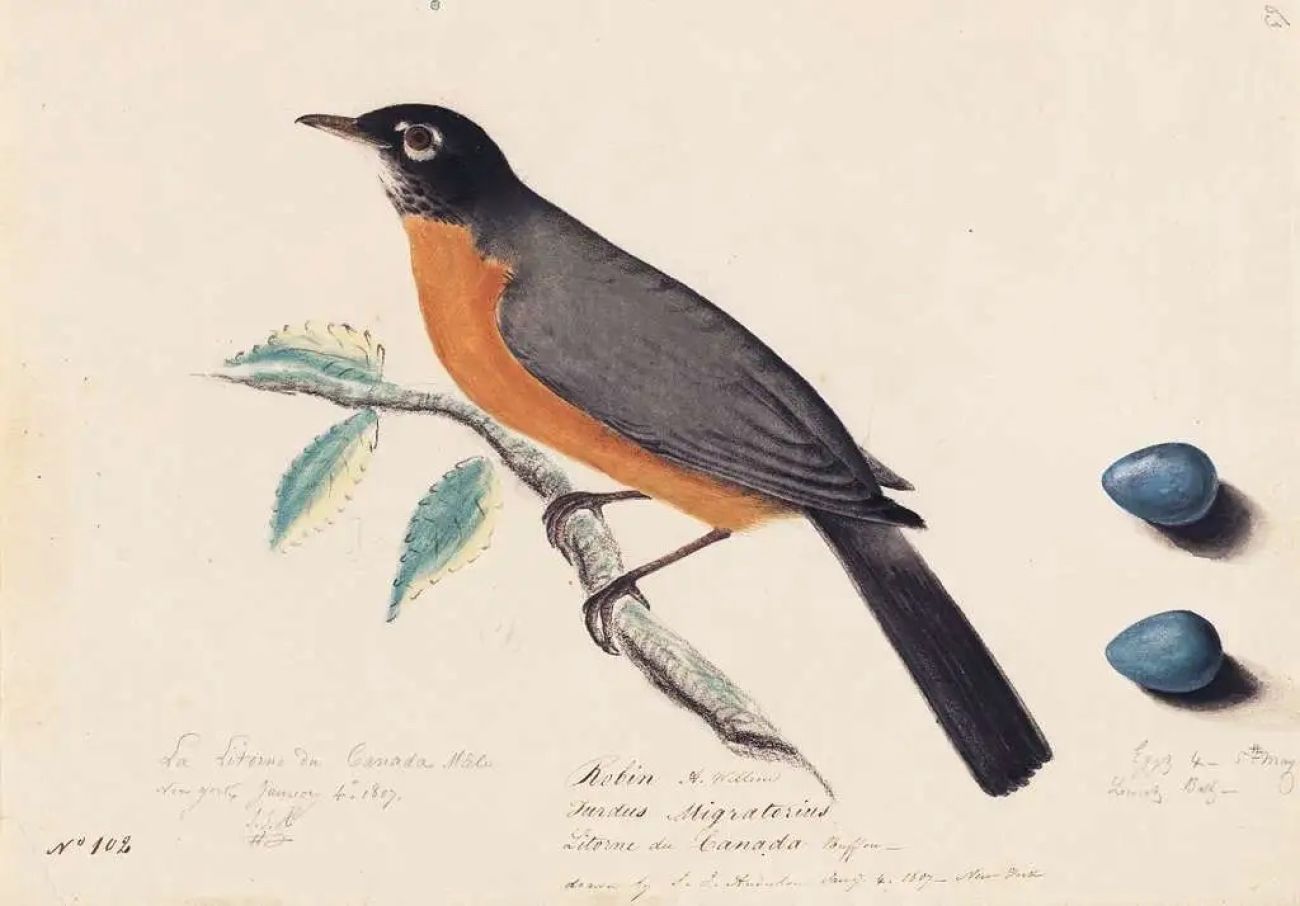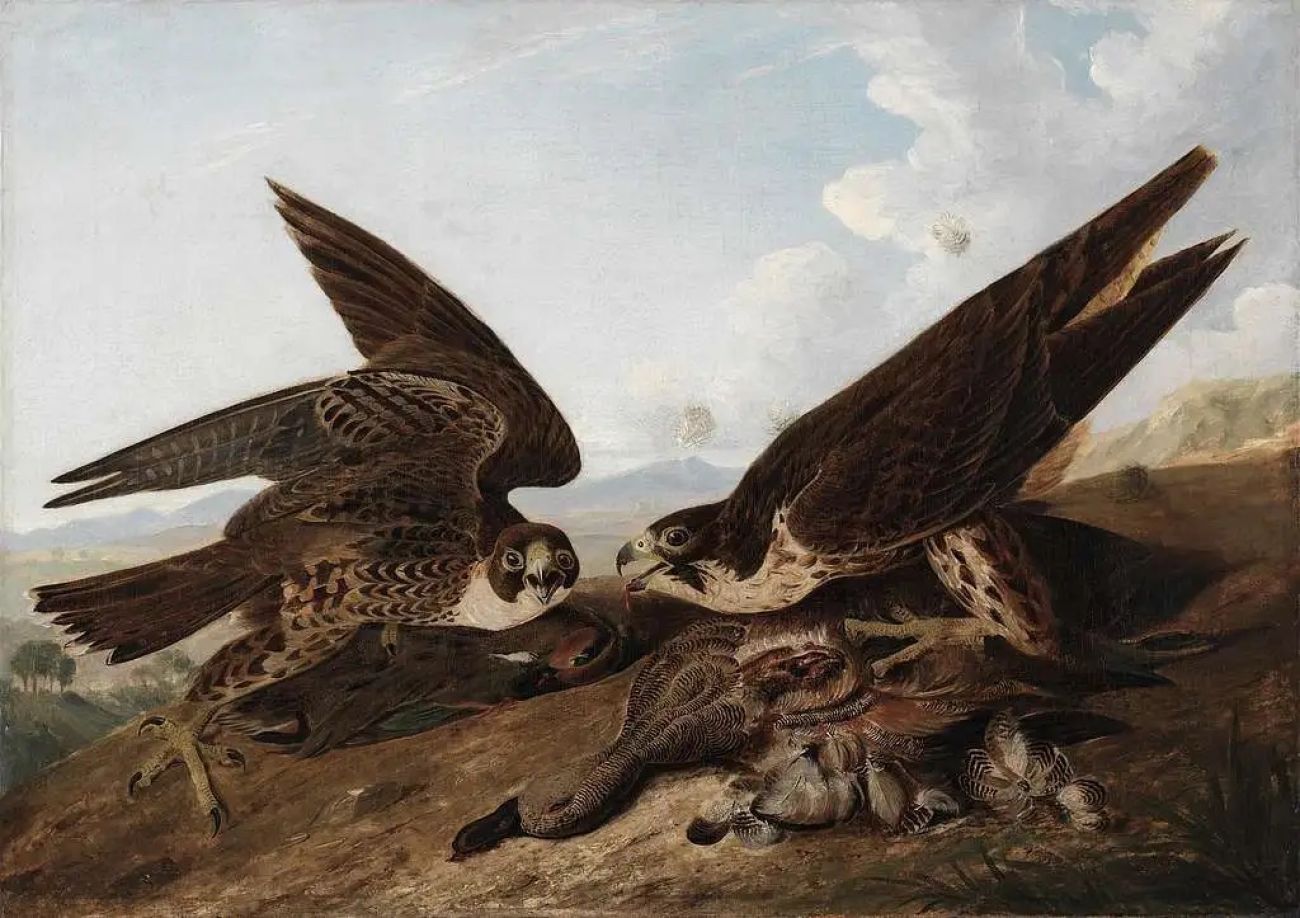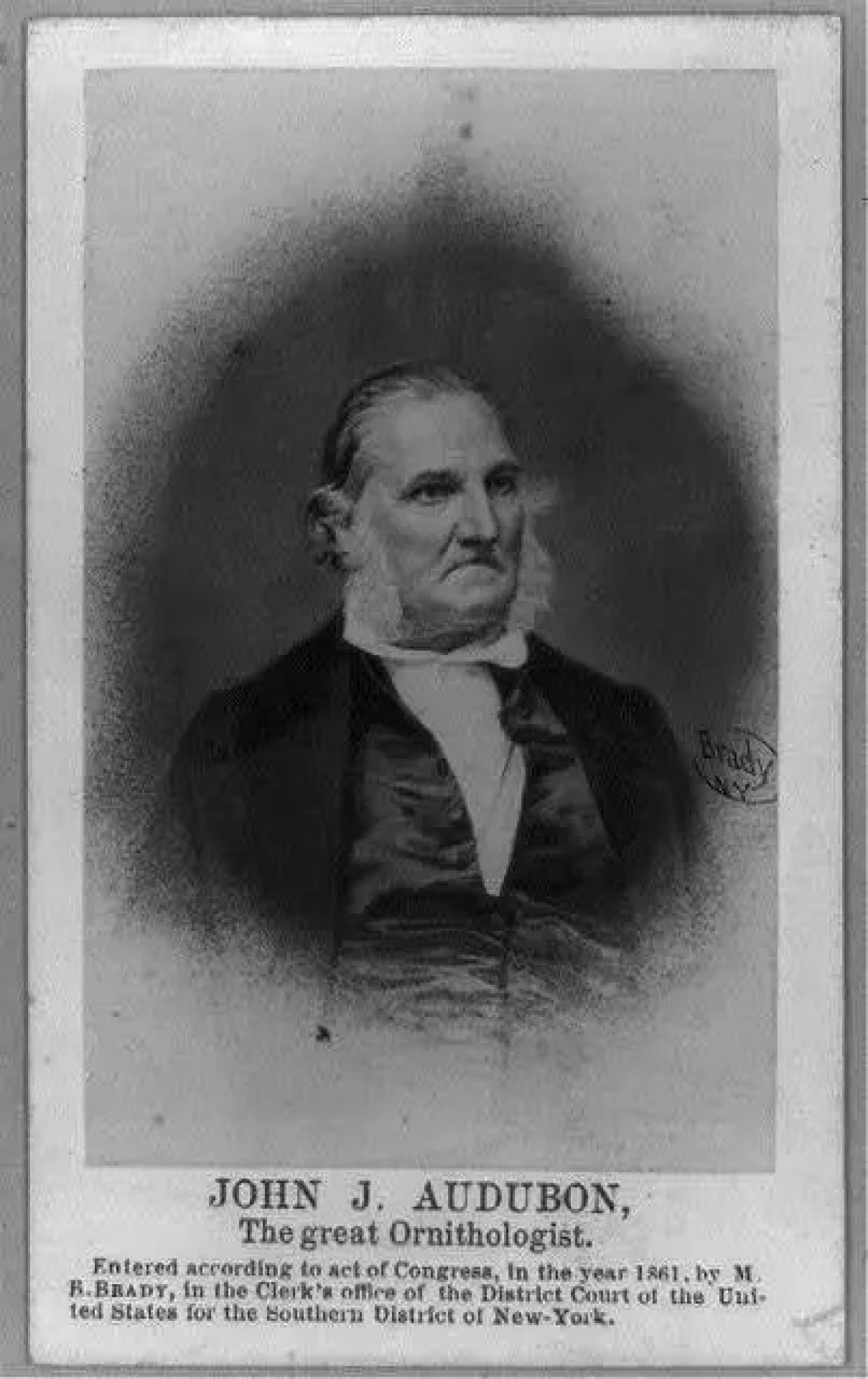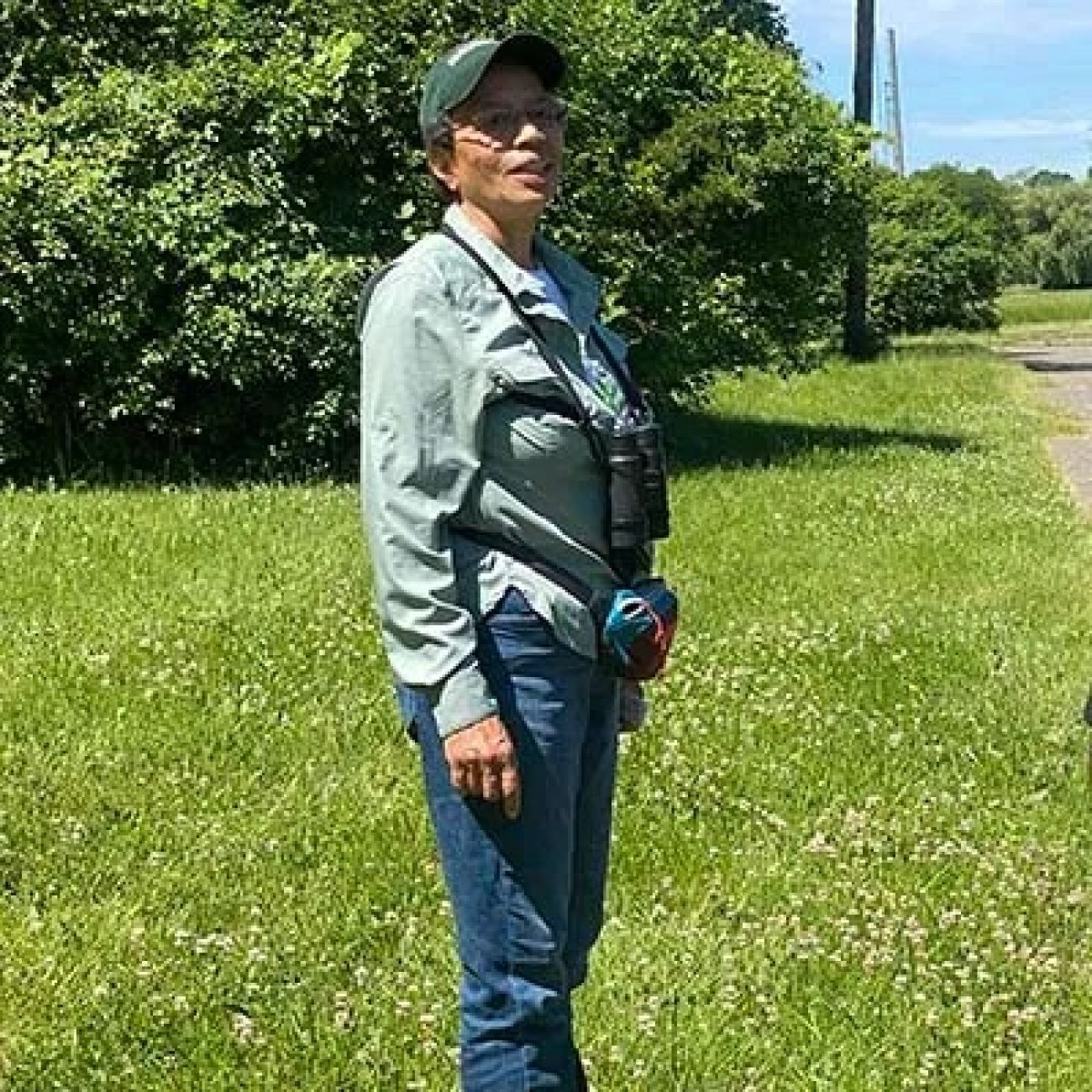Michigan Audubon chapters question future amid debate about racist founder

May 12: Detroit Audubon will change its name, citing need for a ‘more inclusive posture’
Detroit Audubon member Jim Bull’s parents met at a Detroit Audubon Society meeting in the early 1950s, forging a connection over a shared love of birds.
They later named their son James after John James Audubon, the French-American artist whose illustrations of North American bird life earned him iconic status in the burgeoning conservation movement of the late nineteenth and early twentieth centuries. After Audubon died in 1851, a group of ornithologists and naturalists formed a bird conservation organization in 1905. They named it after Audubon for his contributions to North American study.

Bull, now in his seventies, grew up with a deep love and respect for birds. He pursued a career in conservation, earning a Ph.D. in Natural Resources from the University of Michigan and working as a biologist with nature centers, the U.S. Forest Service and the National Park Service. He’s proud of what Audubon has accomplished for bird conservation and has fond memories of camaraderie with the Detroit chapter.
Related:
- Meet the Michigan Magnet Man, finder of lost river trash
- ‘Chemical recycling’ or hot garbage? Michigan proposal cooks up controversy
- Michigan fishing license 2023: How much does it cost and how to apply
But the time has come, he said, to jettison Audubon’s name from the organization.

“The more I learn about John James Audubon, the more I’m convinced that keeping that name is a hindrance to our growing and going forward and being more inclusive,” he told Planet Detroit.
Bull’s conviction stems from a brewing controversy within the National Audubon Society and the larger conservation movement as it reckons with the legacy of its founders – many of whom were white men with racist and colonialist views.
Last month, in a closed-door vote following a year-long evaluation, the National Audubon Society decided to retain the Audubon name. The move prompted the resignation of three of its board members. The union representing Audubon employees moved to drop the name Audubon, renaming itself The Bird Union. Shortly after, the NYC Audubon chapter voted to drop its name, as have local chapters in Seattle, Chicago, Portland, Washington D.C. and elsewhere.
The Audubon Society’s founding marked a turning point in the history of American conservation, playing a key role in advocating for natural resource protection and establishing national parks and wildlife refuges. Today, the Audubon Society is one of the largest and most influential environmental organizations in the United States, with a network of 450 chapters and more than 2.5 million members.
Figures such as Audubon, John Muir, Teddy Roosevelt, and Aldo Leopold are celebrated for their contributions to protecting natural resources and establishing national parks and wilderness areas. But their legacies are complicated by their attitudes and actions toward Indigenous peoples, people of color, and immigrants, and their complicity in the enslavement, displacement and erasure of these communities from their lands.
A biography on the Audubon website describes John James Audubon as “complicated,” noting that he owned slaves, publicly criticized emancipation, committed academic fraud and plagiarism and stole human skulls that he shared with eugenicists.
In a statement on National Audubon’s website, Susan Bell, chair of the National Audubon Society’s Board of Directors, commented, “The name has come to represent so much more than the work of one person, but a broader love of birds and nature, and a non-partisan approach to conservation.”
Following the National Audubon’s decision, local chapters, including Detroit Audubon, are considering their options. In mid-December, Detroit Audubon sent a letter to the national organization calling it to drop the name.

“Detroit Audubon was disappointed that [the national organization] did not take a leadership role in dropping the name,” Detroit Audubon Executive Director Gretchen Abrams told Planet Detroit. “And we believe birds will suffer more because of this poor decision.”
But Jack Smiley, a long-time board member of Detroit Audubon and a former executive director, said he sees both sides of the issue and called the national organization’s decision to keep the name “pragmatic.”
“Audubon has a well-earned reputation of being non-partisan. It’s important to keep that distinction to be effective in the halls of Congress,” he wrote in an email to Planet Detroit, noting that he supports the organization’s financial commitment to diversifying Audubon’s programming. In the wake of the decision, an open letter by National Audubon CEO Dr. Elizabeth Gray announced a new $25 million fund to expand “Equity, Diversity, Inclusion, and Belonging” work.
According to Abrams, the national organization has told local chapters they can still affiliate with it if they change their names. Affiliation includes a range of programming and financial benefits. The Detroit Audubon Chapter receives $15,613 per year from the national organization. Its revenue in 2021 was $176,316, with the majority coming from member donations. Detroit Audubon counts 6,000 members across southeast Michigan and northern Ohio.
Other chapters across the state are also grappling with a decision. The Grand Rapids Audubon Club has followed the national organization’s lead, issuing the following statement: “At this time, we will maintain our club name. We continue to thoughtfully and intentionally examine the actions we must take to foster an inclusive, respectful environment where everyone in our community feels welcomed and empowered to carry out our club’s mission.”
Don Burlett, president of Oakland Audubon in Oakland County, said the organization is “in a holding pattern” on a name change decision, waiting to see what other chapters do while discussing it internally.
“No decisions have been made,” he said. “We’re a birding and conservation organization. And that name has been associated with Audubon for a long time. It’s been around for over 100 years. If you change it, your branding or how people associate with your organization becomes more of a challenge.”
Burlett said he hopes other local Audubon chapters nationwide can come together on a name change.
“It would be really useful from our standpoint if the whole network of people that decide to change their names … have a consistent theme that made it easy for everybody to switch to,” he said.
Partisan politics and bird conservation
The controversy over changing the name of the Audubon Society reflects broader political and cultural divisions around race, identity, and historical memory in the United States. Some worry the issue could create division and conflict within and beyond the organization at a time when bird conservation is needed more than ever. A 2022 report by the U.S. Committee of the North American Bird Conservation Initiative found that more than half of U.S. bird species are declining.
“The reality is that had Audubon chosen to change its name, the organization would have been derided and ostracized by many on the political right,” Smiley said. “This country is divided enough already. Audubon needs to be a unifier and a positive force for conservation.”
But others say the conservation movement needs to take meaningful action for conservation to be more inclusive and effective.
April Campbell, who launched a BIPOC Birders of Michigan group to encourage people of color to embrace birding in response to what she saw as a lack of inclusivity in her local Washtenaw County Audubon chapter, told Planet Detroit that National Audubon’s decision to keep the name is “a big middle finger to people of color.”
“It’s not a partisan issue. Slavery shouldn’t be a partisan issue, either,” she said. “But it was. And the after-effects of it are still with us. I think the National Audubon made a huge mistake.”

Campbell said the national organization’s decision shows the group “lacks courage” and “is really not serious about moving the organization forward with inclusivity.
Leonard Weber, a naturalist, longtime Detroit resident, and former Detroit Audubon member, told Planet Detroit it’s time to shed the name. He has opted to end his membership with Detroit Audubon until it does so.
“[Audubon] was a real racist, in the sense that he supported efforts to prove that whites were different from Blacks – he was a so-called scientific racist,” Weber said. ”And it’s an issue at the very same time that many of us have been frustrated in efforts to enlarge bird-watching and nature-loving activities. We are very predominantly white in a predominantly Black city. And that’s not something that I’m happy with.”
Antonio Cosme, a co-founder of the Black to the Land Coalition, a group that works to connect BIPOC communities with outdoor recreation opportunities in Michigan, told Planet Detroit that fear of losing right-wing conservation interests is a symptom of the larger sickness with the conservation movement that is “obviously failing,” noting dramatic declines in insect and bird populations in recent decades.
“That decline is a result of the failed conservation model,” Cosme added. “I think they need to look deeper than the failure to change the name; it’s also a failure to look critically at the conservation movement they’re a part of. It’s about preserving a paradigm about saving the very little bits of nature left and using it for human purposes, whether that be hunting or fishing or tourism or extraction. It’s a poor model.”
Weber said he has ceased offering field trips for Detroit Audubon. He will now offer tours to groups like BIPOC Birders of Michigan and Black to the Land Coalition.
He sees the decision by the national organization as a missed opportunity.
“While I miss not being able to offer field trips under the auspices of Detroit Audubon this year, I’m feeling good about my decision,” he said. “It is important to emphasize the need to be clear about our actions. Detroit Audubon has been saying that it wants to diversify for a long time, and it’s tough to do because [birding] is a traditionally white-dominated behavior in our society.”
Smiley said he has “mixed feelings” about changing the name of Detroit Audubon.
“Changing our name will effectively disassociate us from the national organization. It would be different had National Audubon chosen to change their name,” he said, noting he believes several Detroit Audubon board members are against a name change but are reluctant to speak out against it.
“Regardless of the sentiments of each board member, Detroit Audubon should go through a very deliberative process, seeking input from our members, as did National Audubon,” he said, noting he’s not optimistic that will happen.
For Campbell, the argument about keeping the name to avoid causing division “doesn’t hold water.”
“A lot of things are divisive,” she said. “Progress is never made without some divisiveness. As they say, you can’t make scrambled eggs without breaking the shells.”
Michigan Environment Watch
Michigan Environment Watch examines how public policy, industry, and other factors interact with the state’s trove of natural resources.
- See full coverage
- Subscribe
- Share tips and questions with Bridge environment reporter Kelly House
Michigan Environment Watch is made possible by generous financial support from:
Our generous Environment Watch underwriters encourage Bridge Michigan readers to also support civic journalism by becoming Bridge members. Please consider joining today.
See what new members are saying about why they donated to Bridge Michigan:
- “In order for this information to be accurate and unbiased it must be underwritten by its readers, not by special interests.” - Larry S.
- “Not many other media sources report on the topics Bridge does.” - Susan B.
- “Your journalism is outstanding and rare these days.” - Mark S.
If you want to ensure the future of nonpartisan, nonprofit Michigan journalism, please become a member today. You, too, will be asked why you donated and maybe we'll feature your quote next time!






